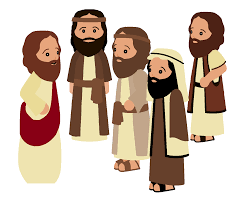John 14:21 – "Whoever has my commandments and keeps them, he it is who loves me. And he who loves me will be loved by my Father, and I will love him and manifest myself to him."
Jesus is in the midst of speaking some final words of wisdom to his disciples before his crucifixion. He has already made the profound point that those who love him will demonstrate that love by obeying his commands (John 14:15, John 21:15-17, etc).

This infers that a person must have knowledge of his commands in order to practice them. If you have been a Christian for a long time, or if you were raised in church, this seems like an obvious principle. But our nation now has entire generations of people who have no religious background at all. They never attended Sunday school or church; they have no systematic biblical teaching.
If you are a Christian who fits this category, be sure you are making an effort to read and study the bible, both Old and New Testaments so that you become familiar with the commands of God. And all of us (regardless of your level of bible knowledge), must be diligent and faithful in our obedience to the commands we know.
Jesus goes on to say that those who love him are loved by Father God. This makes perfect sense, as we have already noted that Jesus and the Father are one in essence and purpose (John 10:30). Therefore, God loves those who love his Son, the one he appointed as Mediator and Redeemer for mankind.
Furthermore, the one who loves Jesus is not only loved by Father God, Jesus loves him/her too and promises to manifest himself to that person.
To manifest means to make something clear, apparent or evident; to make it obvious to the understanding; to make it evident to the senses, especially sight.
So Jesus is promising to make himself clear, apparent and obvious to those that love him. The manner in which he does this will be discussed in verses 23-24.
John 14:22 – Judas (not Iscariot) said to him, Lord, how is it that you will manifest yourself to us, and not to the world?"
Judah was one of the twelve sons of the Jewish patriarch Jacob. Eventually, each son became a tribe of Israel and the Jews often named their sons after one of these early forefathers. Hence, Judah or Judas was a very common name among the Jews.
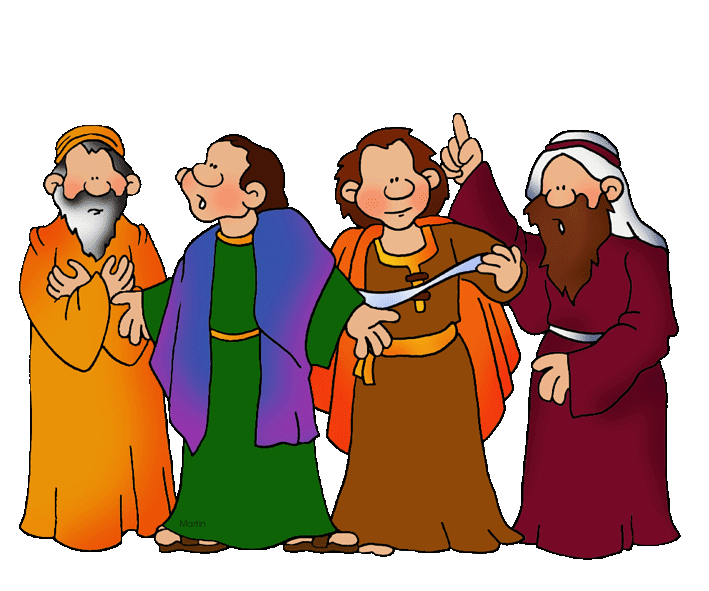
There were two men named Judas among Christ's 12 disciples. Obviously, we are familiar with the traitor, Judas Iscariot. But the man who asks this question of Jesus is the other Judas - the son of Alpheus and brother of James (Luke 6:16), also called Thaddeus (Matthew 10:3). He is the writer of the New Testament book of Jude.
How should we interpret the question of Judas? There are two scenarios to choose from.
- On theory is that Judas still expected Jesus to overthrow the Romans, set up a temporal kingdom on earth and bring Israel into a new golden age of prosperity and power. By default, this kingdom would be conspicuous to the entire world. For this reason, he can't comprehend how Jesus could manifest himself to them, but not the world.
- A second theory is that Judas understood Jesus was referring to a spiritual manifestation and he was humbled and awed by it. He cannot understand why the twelve should receive a special manifestation of God's love, which the rest of the world will not enjoy. He appears to have a desire for everyone to be a partaker of the same grace as they are receiving.
John 14:23 – Jesus answered him, "If anyone loves me he will keep my word, and my Father will love him, and we will come to him and make our home with him."
In response to this question, Jesus goes on to say yet again that anyone who loves him will demonstrate it by obedience to his commands. [FYI, this is the third time he said this. I think it is important.]
'Anyone' is defined as, well, anyone - the disciples, plus all those who believe on Christ through their word, or the word of their successors. Obviously, this includes you and me.
Jesus also reiterates yet again that those who love him will also be loved by Father God; consequently, every Christian (including you) can continuously expect favor, grace, comfort and fresh additional gifts from the Father. As children of God, they will be supported, defended and preserved by their Father.
Jesus further promises that he and the Father will make their home within each Christian. They take up residence in the believer's heart, making them a temple - a fit dwelling place for God:
1 Corinthians - 3:16 Know you not that you are the temple of God, and that the Spirit of God dwells in you?
'Home' (your translation may say 'abode') is a key word in this verse. It is a figurative expression which shows that the presence of the Father, Son and Spirit is not temporary but permanent. They are not just visiting the believer, they have moved in and plan to eternally dwell within him/her. This means the followers of Christ have the privilege of enjoying the Trinity's presence continually.
Thus, Jesus will manifest himself to those that believe in him.
John 14:24 – "Whoever does not love me does not keep my words. And the word that you hear is not mine but the Father's who sent me."
However, there will be those who reject the offer of salvation made by Jesus. Regardless of what these unbelievers claim, their actions prove that they do not love him.
He who does not love Jesus and does not keep his commands has rejected the love of God which is revealed in the Son. He has rejected Christ as his mediator, which is the only way he can reach Father God (John 14:6).
Thus, he himself has closed the channel of communion with God. God cannot dwell with him because there is nothing in him that can receive the Divine Presence. It then follows that this person will have no relationship with the Father, Son or Spirit and thus Jesus cannot manifest himself to them.
That is how Jesus will manifest himself to his followers, but not to the world.
We can't help but notice that the decision to accept or reject Jesus (and consequently the Father and Spirit) is made by each individual person. It has not been predetermined by God. Holy Spirit constantly calls the lost to salvation, but they can choose to reject or accept that offer.
John 14:25-26 – "These things I have spoken to you while I am still with you. But the Helper, the Holy Spirit, whom the Father will send in my name, he will teach you all things and bring to your remembrance all that I have said to you."
Jesus has given the disciples a tremendous amount of information in a very short span of time, and some of the concepts he discussed are spiritually deep/complex. Even on a good day, there is no way that the disciples could understand and remember it all. Due to the turmoil of Jesus' impending humiliation and death, they probably retained even less than they normally would.
But that's okay, because unbeknownst to them, Jesus was actually planting seeds of comfort and truth within their hearts.
 When a farmer plants a seed in the natural realm, it takes some time, some warmth and some water for that seed to sprout, grow and eventually produce a harvest. The seeds of comfort and knowledge that Jesus planted in the disciples that day would remain mostly dormant until Holy Spirit came on the day of Pentecost to water that word and cause it to germinate in the understanding of the disciples.
When a farmer plants a seed in the natural realm, it takes some time, some warmth and some water for that seed to sprout, grow and eventually produce a harvest. The seeds of comfort and knowledge that Jesus planted in the disciples that day would remain mostly dormant until Holy Spirit came on the day of Pentecost to water that word and cause it to germinate in the understanding of the disciples.As mentioned in this passage, Holy Spirit is specifically responsible for doing two things:
Holy Spirit brings to remembrance all that Jesus said to the disciples. Even though they don't realize it yet, it is the task of the disciples (apostles) to organize the church and compose about half of the New Testament scriptures. They have a real need to remember what Jesus said to them!
Over the course of three years together, Jesus imparted a lot of knowledge and doctrine to the disciples. It is only natural that they would forget some of the things he said. We forget things all the time, especially as we get older!
But Holy Spirit will step in and remind the disciples of what Jesus said. The Spirit did this by making use of their memories; he assisted them in recalling what they had forgotten, so that these concepts became firm, distinct, factual memories. Because of the assistance of Holy Spirit, the disciples had all they needed to perform their task of laying the foundations of the church.
Holy Spirit teaches the disciples the true meaning of the things Jesus spoke to them. Hearing was only one-half of the equation for the disciples. They also needed to understand what they heard. Scripture shows that they had an incomplete revelation of many doctrines, until Holy Spirit came on the day of Pentecost and explained/interpreted the truth to them.
For instance, Jesus (and the Old Testament scriptures) had told the disciples many times that Messiah must suffer and die, yet they were surprised and upset when that happened (Luke 24:21-27).
However, Holy Spirit revealed the true purpose of Christ's death to the disciples. At that point, everything made sense to them (see Acts 2:22-33), and they preached Christ crucified from that point forward.
Another example concerns Gentiles coming to faith in Christ. Jesus (and the Old Testament scriptures) made numerous references to the Gentiles being accepted into the family of God (Matthew 12:19-21, John 10:16, Isaiah 42:6, etc). However, the Jews could not wrap their minds around that concept until Holy Spirit enlightened their understanding (Acts chapter 2).
Acts 10:34-35 - Then Peter opened his mouth, and said, Of a truth I perceive that God is no respecter of persons: But in every nation he that fears him, and works righteousness, is accepted with him.
So, even though Jesus is departing from the disciples, they are not alone. As promised, Father God is sending them another teacher who will review the lessons they already heard and teach them things which they could not formerly understand.
Here is some good news – We are not alone either. Holy Spirit is still in the world today and he is still assisting Christians in remembering, interpreting and understanding the words of Christ.
For our part, we should be diligent to read and study the scriptures. This will put something into our hearts and memory banks for Holy Spirit to work with. Remember, Holy Spirit did not magically impart unknown truths to the disciples, and he won't for us either. You have to do your part by reading the word.
John 14:27 – "Peace I leave with you; my peace I give to you. Not as the world gives do I give to you. Let not your hearts be troubled, neither let them be afraid."
'Peace I leave with you' was an invocation of blessing that the Jews commonly spoke to each other when parting ways. It can be understood as a desire for prosperity in body and soul; to enjoy earthly and heavenly good. While it was a nice thought, the vast majority of times it was nothing more than an empty ritual salutation.
But when spoken by the Son of God, it takes on true meaning. Jesus actually had the power to make peace and confer it upon people (Ephesians 2:15).
Isaiah 9:6 - For unto us a child is born, unto us a son is given: and the government shall be upon his shoulder: and his name shall be called Wonderful, Counselor, The mighty God, The everlasting Father, The Prince of Peace.
In this case, it particularly refers to the comfort/consolation he gave to his disciples in view of his upcoming death. He exhorted them not to be troubled (John 14:1), and then he went on to give them many reasons why:
- He was preparing a place for them.
- He was going to return and gather them to himself.
- In the meantime, Holy Ghost was coming to comfort, teach and guide them.
- They were going to do greater works than he did.
- He would do whatever they asked in his name, etc.
But this peace was not just for the disciples. It is given to all believers in Christ, including you and me.
This type of peace can only be imparted by the Prince of Peace (Isaiah 9:6, Romans 8:6, Philippians 4:7, Colossians 3:15, etc).
- It meets all the desires of the soul and silences the alarm of our guilty conscience.
- It remains fixed and unchanged in a world of ever evolving standards.
- It abides with us forever, silencing all anxiety and care.
- It even stays with us in the hour of our death.
- This kind of peace is priceless gift only available through Christ Jesus our Lord.
The 'peace' of this world has nothing in common with the peace of Jesus. At best, it is merely a temporary exemption from outward trouble, which can end at any time.
The people of this world may wish you peace, but the words are empty and meaningless, because they have no true peace to give. They cannot reconcile you to God; they cannot deliver relief to a sinful, guilty heart.
The world tries to find peace in pleasure, fame or wealth but pursuit of these things can actually leave you even more anxious and remorseful. If you ever attain them, you must constantly worry about losing them.
Romans 8:31 - What shall we then say to these things? If God is for us, who can be against us?
In short, believers do not need to live in fear of pain, persecution or trials. We have a faithful friend and Savior who will never leave nor forsake us. His peace is with us at all times. If he is for us, who can be against us?
John 14:28 – "You heard me say to you, 'I am going away, and I will come to you.' If you loved me, you would have rejoiced, because I am going to the Father, for the Father is greater than I."
'Going away' clearly refers to Jesus' imminent death on the cross and 'I will come to you' makes reference to his resurrection on the third day.
If the disciples had a proper love for Jesus and truly understood what was happening, they would have been excited about the completion/fulfillment of God's redemptive plan which required Jesus to return to heaven after his atonement and take up his rightful position as our mediator/intercessor. Only then could Father God shower them with greater blessings brought by Holy Spirit.
Also, because true love seeks another's good and not its own, they should rejoice that Jesus was returning to the glory that was his before the world began.
But obviously they were not rejoicing, which indicates they did not fully understand the plan. They loved Jesus but that love was influenced by their carnal natures and the Jewish beliefs/prejudices they still held. The 'if you loved me' statement of Jesus is a mild reproof towards the disciples, who were slow to believe the clear/plain declarations of Jesus.

Jesus also declares that the disciples should rejoice because he goes to the Father, who is greater than he is. This raises a difficult question: If Jesus and the Father are one in essence and power, how can the Father be greater than Jesus?
Many understand it this way:
When Jesus says the Father is greater, he speaks of his human state:
The Father sent Jesus into the world as the mediator/redeemer of mankind (I John 4:14, John 5:23, John 5:30 & 36, etc). Because the one who sends someone (the master) is always greater than the one who was sent (the servant), the Father is said to be greater than Jesus.
In order to redeem us, Jesus had to lay aside his heavenly glory and come to earth in a body of human flesh, which was created by God like all other human bodies. Since a created creature is always inferior to the Being that made him, the Father is greater than Jesus as long as he was incarnated in the flesh (also referred to as his humiliation).
When Jesus says he and the Father are one, he speaks of his divine nature:
The Father, Son and Holy Spirit are equal, unified members of the Trinity, who have accepted/agreed to take on certain roles in the redemption of mankind. They are still equal in essence and power, regardless of what role they assume.
John 14:29 – "And now I have told you before it takes place, so that when it does take place you may believe."
As we mentioned, the disciples were hearing a vast amount of information which they did not fully comprehend at the time. So Jesus gives them sure and certain sign which they can place their faith in.
He has divinely predicted/foretold what was about to happen, so that his death would not be a stumbling block to their faith. When these events (his crucifixion, resurrection and ascension to heaven) came to pass, it would confirm his message. It proved that he was the Messiah he claimed to be.
It also proved that the disciples were indeed going to receive Holy Spirit who would stand with them forever, assisting them in their Christian journey. They could also confidently believe everything Jesus had said to them over the last three years.
John 14:30-31 – "I will no longer talk much with you, for the ruler of this world is coming. He has no claim on me, but I do as the Father has commanded me so that the world may know that I love the Father. Rise, let us go from here."
Jesus' time with the disciples was indeed coming to a very fast close; he was going to be crucified the very next day. At that very moment, the ruler of this world (Satan) was inciting/provoking/spurring on his emissaries (Judas Iscariot, Pilate, the Jews) to kill Jesus, which they successfully did.
However, Jesus does not undergo the punishment of death because he deserves it; he has no guilt, sin or inward corruption. His arrest and death are entirely voluntary. He accepts the sin of the world and takes it to the cross for many reasons, one of which is to demonstrate how much he loves the Father.
Notice that Jesus shows his love of the Father by being obedient to his commands, just as he expects us to demonstrate our love through obedience to him.
And in obedience to that command, Jesus says 'Rise, let us go from here'. In other words, Jesus is saying 'let us conform to the divine will and go to the place where I will be betrayed, so that I can complete my mission'.
It is possible that they immediately ended the Passover celebration by singing a hymn (Matthew 26:30) and then left for the Mount of Olives. If so, that would indicate the discourses in chapters 15-16 and the prayer of chapter 17 took place while on the road.
However, it is also possible that they remained in the same room until the events of chapter 18. Either way, Jesus has many more final words to speak to his disciples, which we will examine in the weeks to come.
Let me offer you some encouragement:
In today's study we noted that Jesus gave the disciples an enormous amount of teaching/information in a very short time. There is no way they could understand and retain all of it. Their brains were probably on overload! But there was no need for them to worry. Holy Spirit was about to enter their lives and one of his functions was to teach them the true meaning of the words of Jesus.
I don't know about you, but there are passages in the bible that I still do not understand, even after years of studying the scriptures. The good news is that Holy Spirit is still actively revealing truth to Christians today. He alone is uniquely equipped to understand the mind of God (I Corinthians 2:10-12). We can seek him in prayer and receive revelation about the things we do not understand.
Let me offer you some relief:
It sometimes seems as if the world is going crazy! We find more and more instances where evil is called good, and good is classified as evil. This can be very troubling and upsetting.
But let me offer you some relief – Jesus gives us peace that passes all understanding:
Philippians 4:7 - And the peace of God, which passes all understanding, shall keep your hearts and minds through Christ Jesus.
Satan would like nothing more than for us to live our lives in constant anxiety and fear. But we don't have to accept that from him. Jesus has the power to confer peace upon those who trust in him.
When the enemy attacks, fight back by quoting scriptures and praising Jesus. The enemy will flee from you, taking his anxiety and fear with him!
Let me offer you some strength:
Jesus promised to manifest (make himself seen/known) to those who love him. He further promised that he and the Father would intimately commune with every believer and the Father would pour out blessings including favor, grace, comfort, provision, etc.
So if/when you get weary walking the path of this life, stop and spend some time with Father God. Ask him to pour out his blessings on your life and give you the strength to live the victorious Christian life that he has already planned for you to have!




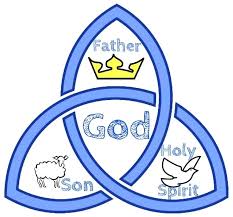









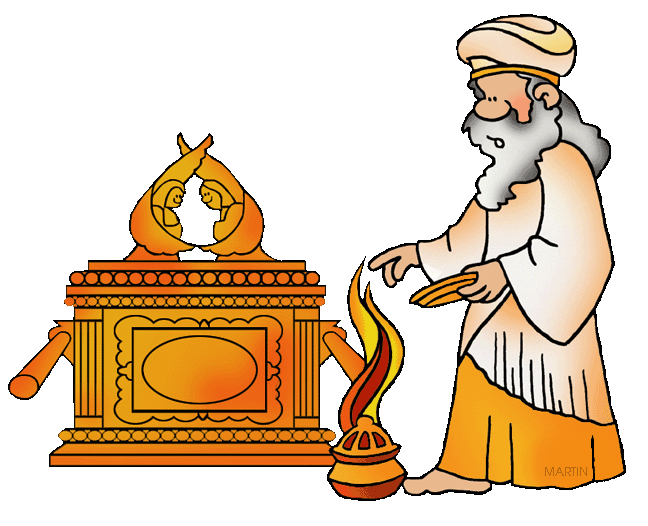
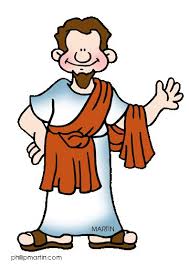


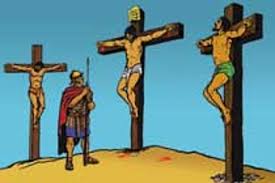





 twelve, as Jesus was clearly their superior, and this menial task was always performed by servants.
twelve, as Jesus was clearly their superior, and this menial task was always performed by servants. 







